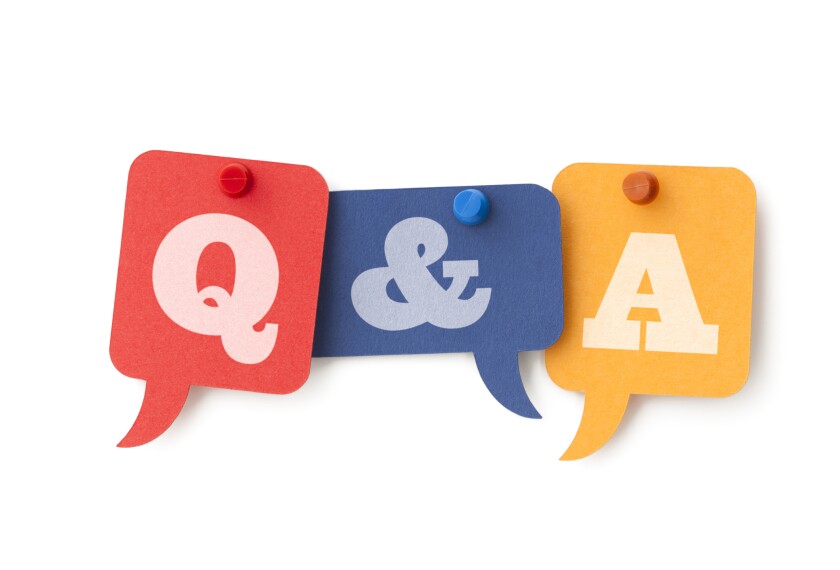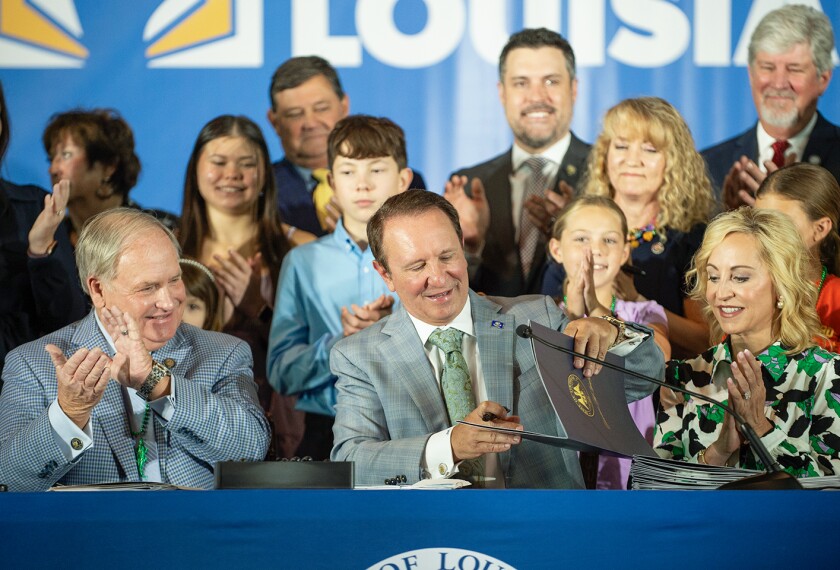You can read this essay in a number of ways.
You might skim it and forget it—the fate of most internet content. Or you might take it seriously, consider it against your own intuition and experience, and note points of agreement and disagreement.
From a certain perspective, it’s interesting that you would take either of these approaches. You wouldn’t allow me physically into your home or office just to divert you with my opinions without knowing who I am first. Is it possible that, when it comes to media engagement, you’re moving too fast?
For the sake of argument, I’ll introduce myself: I’m a high school history, English, and philosophy teacher who co-founded an education company called The Nomadic Professor. The NP produces high school history courses and an elective high school media-literacy course in partnership with Ground News, a platform that allows readers to compare right-, center-, and left-leaning media coverage of the same stories.
So, does my teaching experience and subject expertise make me a credible source about media-literacy policy? Or does my private entrepreneurship compromise my credibility because I now have a vested interest? If you didn’t think to ask these questions, why not?
But let’s take it a little further.
If you really wanted to engage with me, you might take a few big steps back and contextualize everything. Education Week is a newspaper that has been covering K-12 education since 1981. According to Ground News, their politics are in the “center.” This is an Education Week opinion essay, which means it’s not traditional news journalism seeking only to inform but a more deliberately argumentative piece of writing seeking to persuade.
You’re likely reading this on a laptop or a smartphone, and perhaps these mediums have just as much to do with my message as the message itself, since the message has been crafted to work on the internet: It’s concise, hyperlinked, conversational, and optimized for search engines.
Further, I must try to keep your attention because attention is the 21st-century currency that matters—the longer you’re on this page, the more links you click on, the more you engage with this essay and other pages on this site, the better it is for me and the publisher. We’ll look better to Google, appear on more organic search results, earn more followers, and look better to customers, donors, and advertisers.
So perhaps you’re wondering if I’m a sincere person or a cynical person or whether online writing is just self-interested attention seeking.
This is some of the inevitable subtext behind reading online. It’s part of what’s going on below the surface that many readers—student and adults alike—don’t take the time to consider or don’t know how to consider.
But perhaps this wasn’t a fair test. Because the subject of this article is harmless, your guard may have been down when you started reading it. Perhaps you would have read more carefully if the stakes were higher. What if the title of the article had been this:
LIBERAL LAWMAKERS OUT TO STRIP SCHOOLS OF THE RESOURCES NEEDED TO TEACH KIDS TO READ ONLINE
Or this:
REPUBLICAN LEGISLATORS NOT PULLING THEIR WEIGHT: WHY DON’T THEY CARE ABOUT MEDIA LITERACY?
Or this:
THE GOVERNMENT IS FAILING TO MAKE KIDS DIGITALLY LITERATE; PARENTS, TAKE CONTROL OF YOUR KIDS’ EDUCATION
How would you have reacted in these cases?
Would these titles have caused you to scrutinize more closely? Or would they have caused you to assume the garb of your existing political identity and get a little defensive and dismissive on the one hand or warm and self-congratulatory on the other?
Would your opinion have been impacted by the order in which each source appeared in your search results? By who was looking over your shoulder as you decided what to click on? What if these articles were sponsored? How would you know?
What if one was an opinion article versus a piece of investigative reporting? If one came from a clean website and the others from a site that was less polished? If you found one through Google and one through the social media post of a friend? If one was 10 years old and the others more recent? Would you know how to find alternative sources? Would you be open to changing your mind?
What if you went back and asked your students questions like these?
Study after study suggests students can’t imagine these questions, let alone answer them. They struggle to distinguish between advertising, propaganda, opinion writing, and journalism. They judge sources quickly and unreflectively based on gut reactions, group loyalties, and shallow criteria. They’re vulnerable to manipulation, clickbait, and cognitive illusions.
Even their teachers often rely on outdated criteria—educators require more training and resources to update and expand their instruction, especially amid the ubiquitous presence of algorithms, automation, and artificial intelligence.
But media literacy is about more than outdated library checklists for reliability. It is its own subject area that brings together insights and tools from the humanities, the social sciences, technology, advertising, and journalism to articulate a complete account of the things that inform what we see in the news, on social media, between flesh-and-blood people, in politics, and in public discourse. It incorporates ideas from a wide range of thinkers from around the world, from Ancient Greece to the present day.
It merits a place as a core subject for a general adolescent education—not merely a supplement to other subjects—in public schools, private schools, home schools, and everything between.
The breadth of coverage, range of practice exercises, and sheer amount of study time made possible by this stand-alone, core-subject approach can put the contemporary world and people in context for students. It can also help them develop skills and perspective that may help them relax their grip on dogma, judgment, their political priors, and their identities, and perhaps even to live with a little more tolerance, understanding, and confidence and a lot more skepticism, scrutiny, and sophistication.
If the internet is new enough that even educated adults—especially teachers—are misled by its subtle agendas, where do we imagine students are getting their media-literacy instruction? It’s going to take more than occasional dinner table discussions, one-off classroom activities, and distant scholarly research to collectively “grow up” with the internet. We need more rigorous and comprehensive K-12 media-literacy courses now.
Disclaimer: The copyright of this article belongs to the original author. Reposting this article is solely for the purpose of information dissemination and does not constitute any investment advice. If there is any infringement, please contact us immediately. We will make corrections or deletions as necessary. Thank you.







